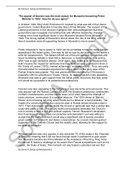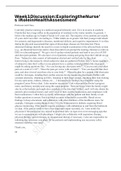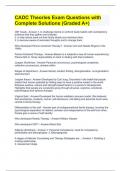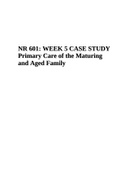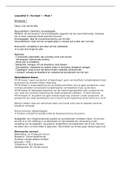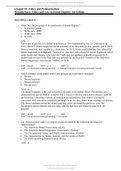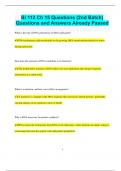Essay
Cambridge A-Level History (9489) Paper 4 Mussolini’s Italy Sample Essays
- Vak
- Instelling
A collection of four A* standard essays for Cambridge A-Level History (9489) Paper 4: Mussolini's Italy. I achieved an A* for History in the Cambridge A-Level October/November 2022 Examinations and was awarded the Outstanding Cambridge Learners High Achievement Award for History. The responses t...
[Meer zien]
